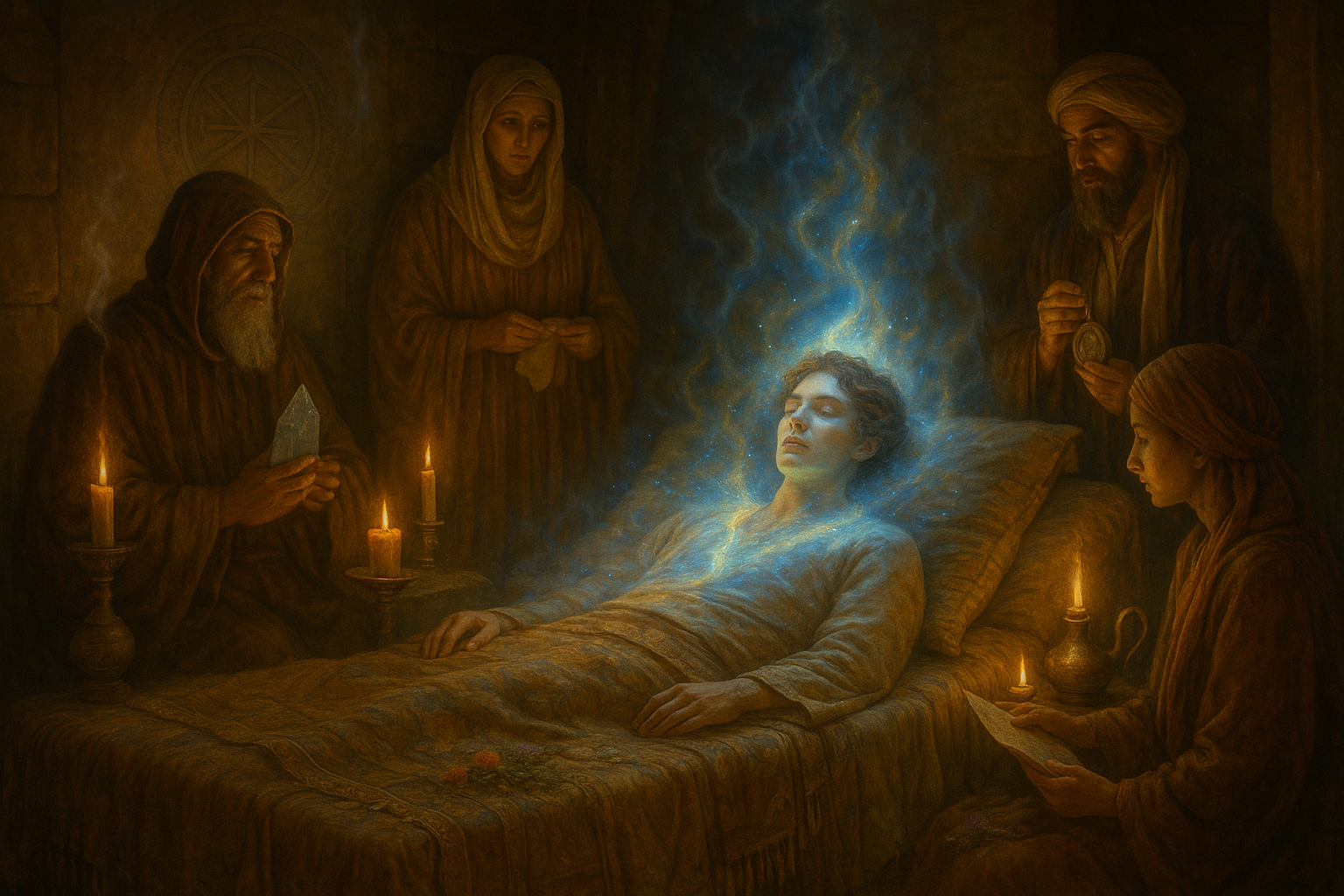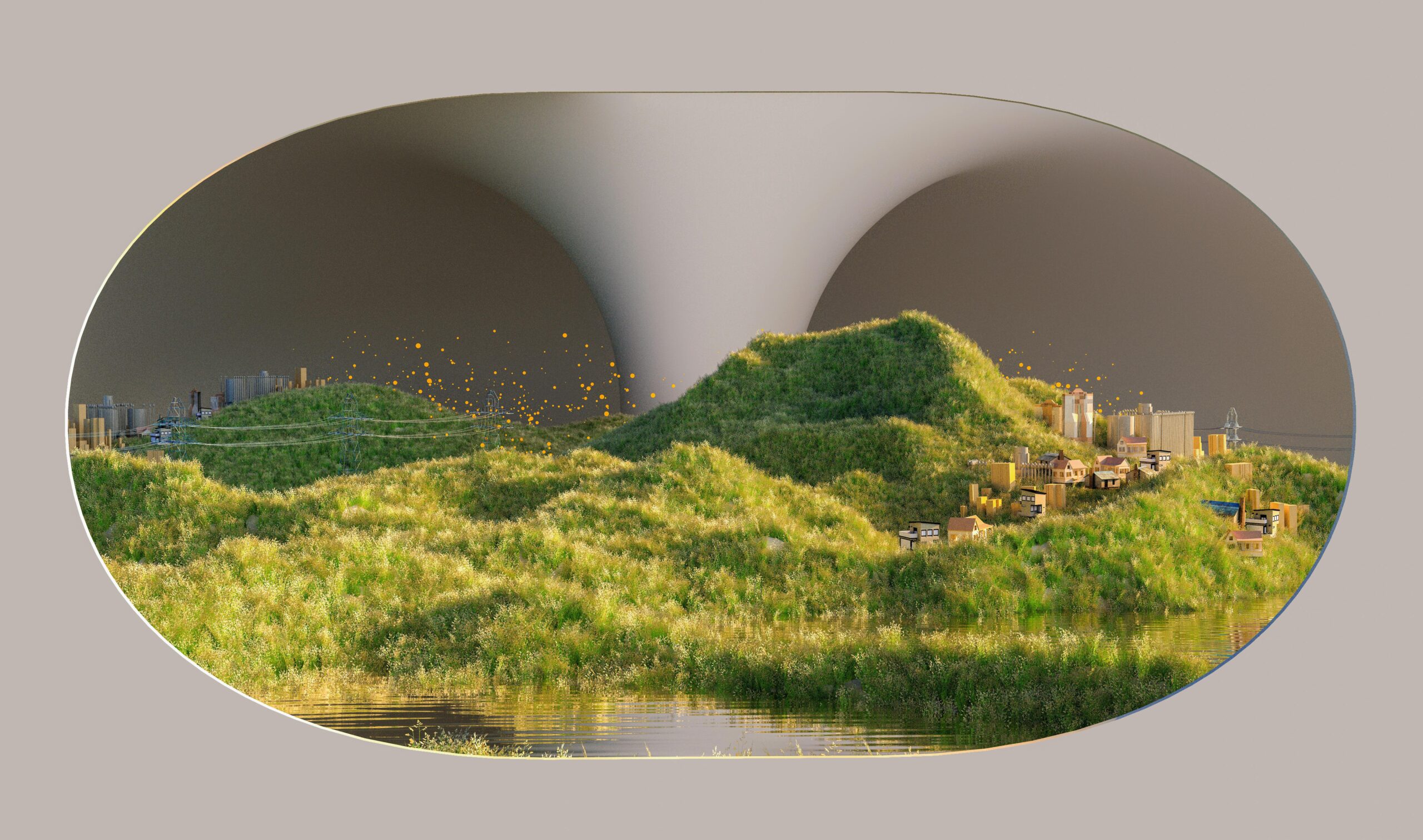Have you ever woken up from a dream that felt so vivid and real that you could swear you were living in another realm? Imagine harnessing this power, the ability to navigate and control your dreams, to unlock secrets of the universe and gain profound insights into your life. Welcome to the enigmatic world of lucid dreaming—a mystical practice that has fascinated humans for centuries. In this article, we will embark on a captivating journey into the spiritual realm, exploring how ancient cultures used lucid dreams as a powerful tool for divination and spiritual growth.
Throughout history, dreams have been a source of wonder and mystery. They bridge the gap between the conscious and unconscious mind, offering a glimpse into worlds beyond our waking reality. For ancient civilizations, dreams were not mere figments of imagination, but sacred messages from the divine, brimming with symbols and hidden meanings. Lucid dreaming, the art of becoming aware and in control of your dreams, was considered a sacred practice, a gateway to the spiritual realm where one could seek guidance and wisdom.
From the ancient Egyptians, who believed dreams were a medium for communication with gods, to the indigenous shamans who used dream states for healing and prophecy, lucid dreaming played a crucial role in spiritual practices around the world. The ability to engage with dreams consciously allowed individuals to navigate the metaphysical realms, explore their psyche, and tap into a wellspring of spiritual knowledge. But how exactly did these ancient cultures utilize lucid dreaming for divination?
As we delve deeper, we will explore the methods and rituals employed by these civilizations to induce lucid dreams. From sacred herbs and elaborate ceremonies to meditative practices and dream journaling, each culture had its unique approach. We’ll uncover the techniques that have stood the test of time and discuss how modern dream enthusiasts can incorporate these ancient practices into their own lives.
Moreover, we’ll examine the spiritual significance of dreams and how they were interpreted by different cultures. For the Greeks, dreams were portals to the divine, a means to receive messages from the gods. The Egyptians crafted elaborate dream manuals, filled with interpretations and symbols, to decode the messages received during sleep. In indigenous cultures, dreams were seen as a way to connect with ancestors and the spirit world, providing guidance and healing.
But lucid dreaming is not just a relic of the past; it continues to captivate and intrigue us today. In our modern world, where the lines between reality and virtuality blur, lucid dreaming offers a unique opportunity for self-exploration and personal growth. Through lucid dreaming, individuals can confront fears, overcome obstacles, and unlock creative potential. Imagine the possibilities when you can consciously navigate the dreamscape, transforming nightmares into empowering experiences or brainstorming solutions to waking life challenges.
In the following sections, we will delve into the neuroscience behind lucid dreaming, uncovering the science that demystifies this otherworldly phenomenon. Understanding the brain activity and psychological processes involved in lucid dreaming provides a foundation for those seeking to master this art. We’ll also provide practical tips and exercises to help you embark on your own lucid dreaming journey, bridging the gap between ancient wisdom and modern science.
Join us as we unravel the mystical power of lucid dreams in ancient divination. Whether you are a seasoned dreamer or a curious beginner, this exploration promises to enrich your understanding of dreams and open the door to new realms of consciousness. Prepare to embark on an adventure that transcends time and space, where the mystical and the mundane intertwine, and where the secrets of the universe await those who dare to dream. 🌌
The Enchanting History of Lucid Dreams: A Portal to the Divine
Lucid dreaming has been a phenomenon that intrigued humanity for centuries. The ability to control and be aware of one’s dreams opens up a realm of possibilities that blur the lines between reality and the ethereal. In ancient civilizations, lucid dreams were often regarded as a gateway to the divine, serving as powerful tools for divination and spiritual exploration. From the Egyptians to the Greeks, various cultures harnessed the mystical power of dreams to gain insights and communicate with the spiritual realm.
The ancient Egyptians, for instance, placed great importance on dreams and their interpretations. They believed that dreams were messages from the gods, offering guidance and wisdom. Priests and priestesses often served as dream interpreters, utilizing lucid dreams to connect with deities and seek answers to pressing questions. Similarly, the Greeks developed a profound understanding of dreams, with philosophers like Aristotle and Plato exploring their significance in human experience. The Greek practice of incubation involved sleeping in sacred temples to induce prophetic dreams, demonstrating the deep-seated belief in the power of the dream world.
To better understand the role of lucid dreams in ancient divination, it’s essential to explore the cultural contexts and the rituals surrounding this mystical practice. The table below compares the approach to lucid dreams in various ancient cultures, highlighting the unique perspectives and methodologies they employed.
| Culture | Belief | Practice |
|---|---|---|
| Egyptian | Dreams as divine messages | Dream interpretation by priests |
| Greek | Dreams as a bridge to the divine | Incubation in sacred temples |
| Indigenous Tribes | Dreams as spiritual journeys | Shamanic dreamwalking |
Modern Perspectives and Revival of Ancient Practices
As we delve deeper into the past, it becomes apparent that modern interest in lucid dreaming is a revival of ancient practices. Today, lucid dreaming is not only a subject of scientific inquiry but also a tool for personal growth and spiritual exploration. The resurgence of interest can be attributed to a growing awareness of consciousness and the potential of dreams to provide profound insights into our psyche. Many contemporary practitioners combine ancient techniques with modern psychology to harness the power of lucid dreams.
One such modern application is the use of lucid dreams in therapeutic settings. Therapists often encourage clients to explore their dreams consciously to confront fears, overcome trauma, and gain self-awareness. The therapeutic potential of lucid dreams has sparked interest in the scientific community, leading to studies that aim to understand the neurological mechanisms behind this fascinating phenomenon. To learn more about the scientific underpinnings of lucid dreams, watch this insightful video from the channel “Science of Dreams”.
For those interested in exploring lucid dreaming for personal or spiritual purposes, there are various techniques and practices that can be employed. Some of these methods include reality checks, dream journaling, and meditation. Incorporating these practices into daily life can enhance one’s ability to achieve lucidity in dreams, opening the door to transformative experiences and profound self-discovery.
- Reality Checks: Frequently questioning whether you are awake or dreaming to train your mind to recognize the dream state.
- Dream Journaling: Keeping a detailed record of your dreams to increase awareness and recall.
- Meditation: Cultivating mindfulness and focus, which can enhance lucidity in dreams.
Delving Deeper: Lucid Dreams as a Tool for Spiritual Exploration
The spiritual aspect of lucid dreaming is perhaps its most captivating feature. Throughout history, individuals have used dreams as a medium to connect with higher consciousness and explore existential questions. Lucid dreams provide a unique opportunity to interact with the subconscious mind, often revealing hidden truths and offering new perspectives on life.
In many indigenous cultures, shamans use lucid dreaming as a form of spiritual journeying or dreamwalking. This practice involves entering a dream state intentionally to seek guidance, healing, or knowledge from the spiritual realm. Shamans often describe their experiences as vivid and enlightening, with the dream world serving as a mirror to the soul.
For those seeking spiritual growth, lucid dreaming can be a powerful tool. By fostering a deeper connection with the inner self, individuals can explore their beliefs, confront fears, and gain insights that transcend the limitations of waking life. As you explore the mystical world of lucid dreams, remember to approach the journey with an open mind and a spirit of curiosity. Who knows what wisdom and wonders await you in the dream realm? 🌙✨

Conclusion
Conclusion: Embracing the Mystical Power of Lucid Dreams
As we draw the curtain on this enthralling exploration of lucid dreams and their profound role in ancient divination, it becomes clear that this phenomenon extends far beyond mere nocturnal adventures. Our journey into the spiritual realm has unveiled how ancient cultures revered lucid dreams as a bridge to the divine, a tool for gaining insight, wisdom, and guidance.
We began by delving into the definition of lucid dreams, understanding them as dreams where the dreamer is aware of dreaming and can often exert control over the dream narrative. This awareness and control open a portal to self-exploration and potential spiritual awakening, aspects that ancient civilizations tapped into with great reverence.
Moving through the corridors of history, we examined various cultures that utilized lucid dreaming in their spiritual and divinatory practices. From the aboriginal tribes of Australia to the shamanic traditions of Siberia, lucid dreaming has been an intrinsic part of spiritual practices worldwide. These cultures recognized the dream state as a sacred space where the conscious mind could commune with the divine and where messages from the gods or the universe could be received and interpreted.
Particularly fascinating was our look into Ancient Greece and Egypt, where dream temples and dream incubation were prominent. These were not merely rituals of superstition but well-structured practices aiming to connect with higher powers, seek solutions to problems, or even heal the body and mind. Such practices remind us of the profound respect ancient civilizations had for the subconscious mind and its untapped potential.
Our exploration also touched upon the scientific aspect, discussing how contemporary research continues to unravel the mysteries of lucid dreaming. Modern science, through disciplines like neurology and psychology, is beginning to validate what ancient societies have long known: lucid dreams can be powerful tools for personal growth and spiritual insight. This blending of ancient wisdom and modern science paves the way for a deeper understanding of the mind and the mysteries it holds.
In today’s fast-paced world, reconnecting with the spiritual practices of our ancestors can provide us with balance and perspective. By embracing lucid dreaming as a tool for spiritual growth, we open ourselves to a realm of infinite possibilities. The practice encourages mindfulness, creativity, and self-awareness, qualities that are invaluable in our personal and professional lives.
As we conclude, the mystical power of lucid dreams beckons us to delve deeper into our subconscious and discover the treasures hidden within. Whether you approach it from a spiritual, psychological, or scientific perspective, lucid dreaming offers a unique opportunity to enhance our lives and understand the world around us.
We invite you, dear reader, to reflect on this journey and consider how lucid dreams might serve as a tool for your personal growth or spiritual exploration. Feel free to share your thoughts in the comments below. Have you experienced lucid dreaming? How has it impacted your life? Join the conversation and share this article with friends who might be interested in this fascinating subject. 🌌✨
For those eager to explore further, consider diving into works like “Exploring the World of Lucid Dreaming” by Stephen LaBerge or “Lucid Dreaming: Gateway to the Inner Self” by Robert Waggoner, which offer comprehensive insights into the practice and potential of lucid dreams. Also, visit [The Lucid Dreaming Community](https://www.world-of-lucid-dreaming.com) for active discussions and resources.
In closing, may your journey into the spiritual realm of lucid dreams be enlightening and transformative. Embrace the mysteries that lie beyond the veil of sleep, and let them guide you to a deeper understanding of yourself and the universe. 🌙




